According to a 2022 UNESCO report, which remains the most recent, there are 244 million out of school children (6 to 18 year olds) worldwide. Africa accounts for the highest number with 98 million children of school age out of school, followed by Asia with 85 million. Nigeria leads the table with over 20 million out of school children, a staggering 10% or so of its entire population. West and Central Africa account for almost a quarter of the total number worldwide with 58 million. All these may sound like mere figures, until someone spells out the implications. And Maureen Magee, Regional Director for the Norwegian Refugee Council (NRC) in Central and West Africa brought the implications home with ample clarity when she said, “every child out of school, every day of learning lost, is one brick fewer to build peace and prosperity in the region.” That sadly, is the simple truth.
In an effort to ameliorate this situation in several regions of the world but particularly in Africa, Rebecca Stromeyer, the multilingual and multicultural German-Australian, and globally recognised leader in the field of digital learning, EdTech and international education, established what has come to be known as perhaps the leading e-learning outfit in Africa. Driven by a burning desire to see our world become a more just one, and recognising education as a primary tool to make this reality, she founded eLearning Africa, which is positively shaping the future of education and skills development across the continent. Curious to know what motivates her tireless effort, EduTimes Africa sought an audience with her and was glad that it was granted.
Tell us a little about yourself and how your super multicultural background came about. How many languages do you speak?
Born in Kuwait, I spent my early years there before moving to Iran, Lebanon, Great Britain, and finally Germany. My parents were both teachers. My German father established adult education centers across the Arab World in the 1960s and 1970s. My Australian mother supported him in this initiative. Throughout these relocations, I attended local schools, receiving an education in languages other than my mother tongue, English. Initially, my schooling was in Arabic, French, and Persian, later on it was in German. I continued with French as a major subject in secondary education, and also took Italian as a minor subject for the last three years of my schooling. During my university years, where I studied Slavonic Studies, I learned Russian.
Language skills ebb and flow with practice; as a result, my current language proficiencies reflect this. I am fluent in English and German, have working proficiency in French and Russian, conversational ability in Italian, survival Arabic, and my Persian is non-existent.
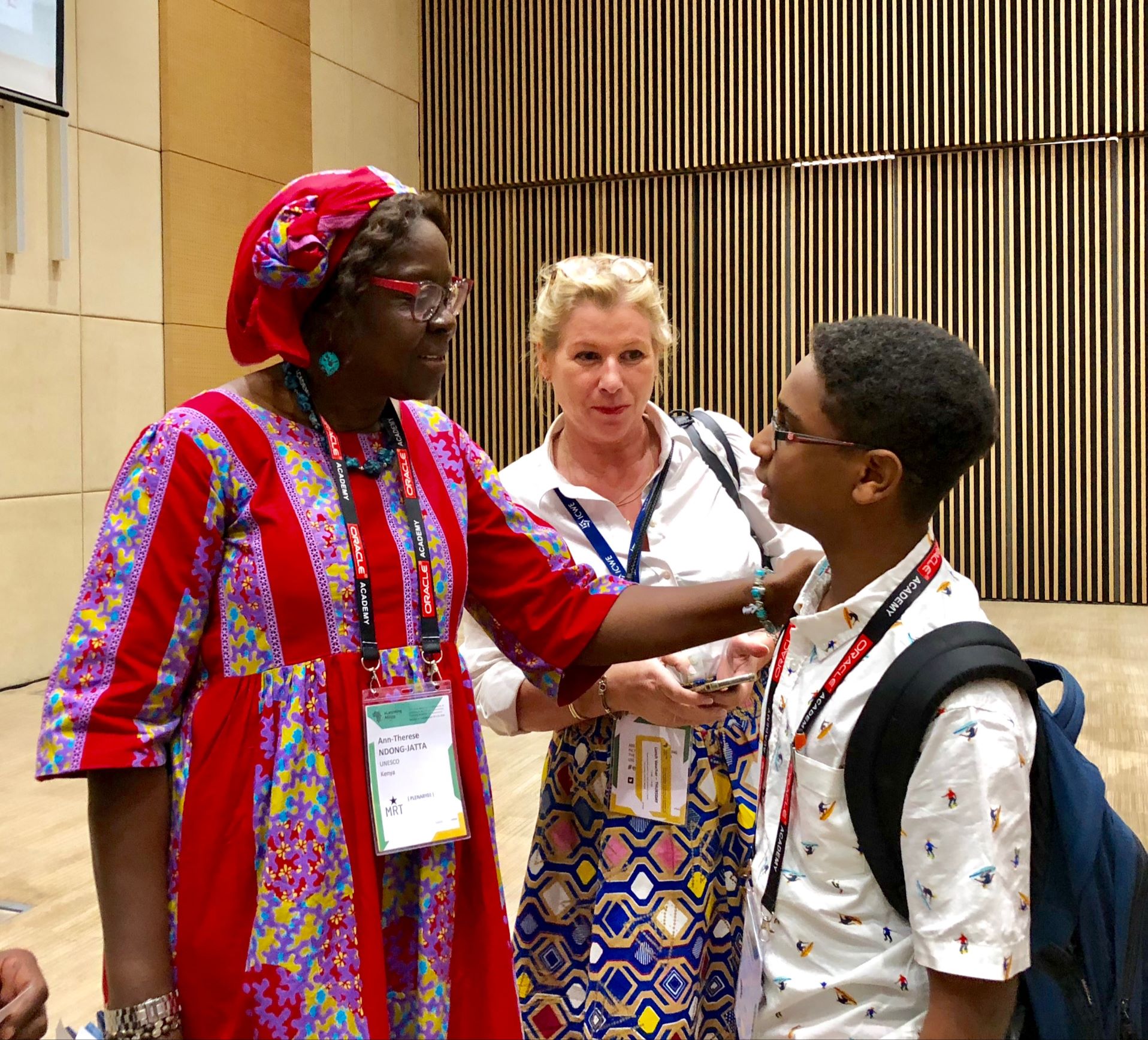
What makes Rebecca Stromeyer tick?
My motivation stems from a simple yet strong belief in the power of education to change lives and societies. At its core, my commitment to this cause is deeply rooted in a sense of justice and equality, compelling me to strive for access to education for all. I see education as the great equaliser, a tool that can level the playing field, providing individuals from all backgrounds with the opportunity to succeed and thrive.
However, I also appreciate the value of profound wisdom that formal education cannot teach. This wisdom, deeply rooted in lived experiences and passed down through generations, does more than enrich our understanding of the world; it grants us foresight, enhancing our ability to make decisions that benefit not only ourselves but also the broader community. It teaches us the importance of considering the long-term consequences of our actions, guiding us towards choices that positively impact those around us and contribute to the richness and vibrancy of our societies. This wisdom affirms the fact that education extends beyond academic achievement, emphasising the need to value and integrate the diverse knowledge systems that enrich our collective existence.
An educated population is the foundation of a healthy democracy, fostering a society where critical thinking and informed decision-making prevail. This allows citizens to participate actively and responsibly in the democratic process, essential for societies that value freedom, equity, and justice.
Integral to this democratic engagement is the ability of the populace to critically assess information. In today’s world, where disinformation and ‘fake news’ proliferate, the role of education becomes even more critical. It should equip individuals with the necessary critical thinking skills and discernment to question and evaluate the information that surrounds us. This capability not only upholds the integrity of our democratic processes but also promotes a society that values truth and is resilient against the forces that seek to undermine it.
By ensuring that our educational systems and broader society – including our communities -nurture these critical faculties, we empower citizens to make informed decisions, a prerequisite for maintaining the health and vitality of a democracy. It is through such informed participation that we can collectively guard against the corrosive effects of misinformation, fostering a public discourse grounded in accuracy and accountability.
Education and wisdom together expand our minds, ignite curiosity, and encourage exploration across diverse disciplines. They can make us more empathetic and less fearful of the unknown, essential for innovation, creativity, and problem-solving in an increasingly complex world. By opening our minds and making us curious, education and wisdom together contribute to a better quality of life, enriching the human experience beyond professional success.
Furthermore, the role of exposure cannot be overstated. Exposure to different cultures, countries, situations, ideas, and ways of thinking, challenges our preconceptions and biases. It promotes tolerance, empathy, and a willingness to engage in constructive dialogue, laying the foundation for a more inclusive and peaceful society.
I also believe in the power of kindness, compassion, and empathy. These values, essential for creating a more understanding and caring world, must not only be taught but actively practiced within our educational systems, communities and families. It is through these values that we forge deeper connections with others, working towards common goals that transcend personal gains for the greater good. This approach not only nurtures individual well-being but also reinforces our collective responsibility as members of a global community.
Lastly, while there has been a significant shift towards individualism, with a focus on personal well-being, we must not lose sight of our place within a global community. Education should remind us of our interconnectedness and the importance of working together towards common goals. It is through this collective effort that we can address global challenges and create a world that is sustainable, just, and inclusive for all.
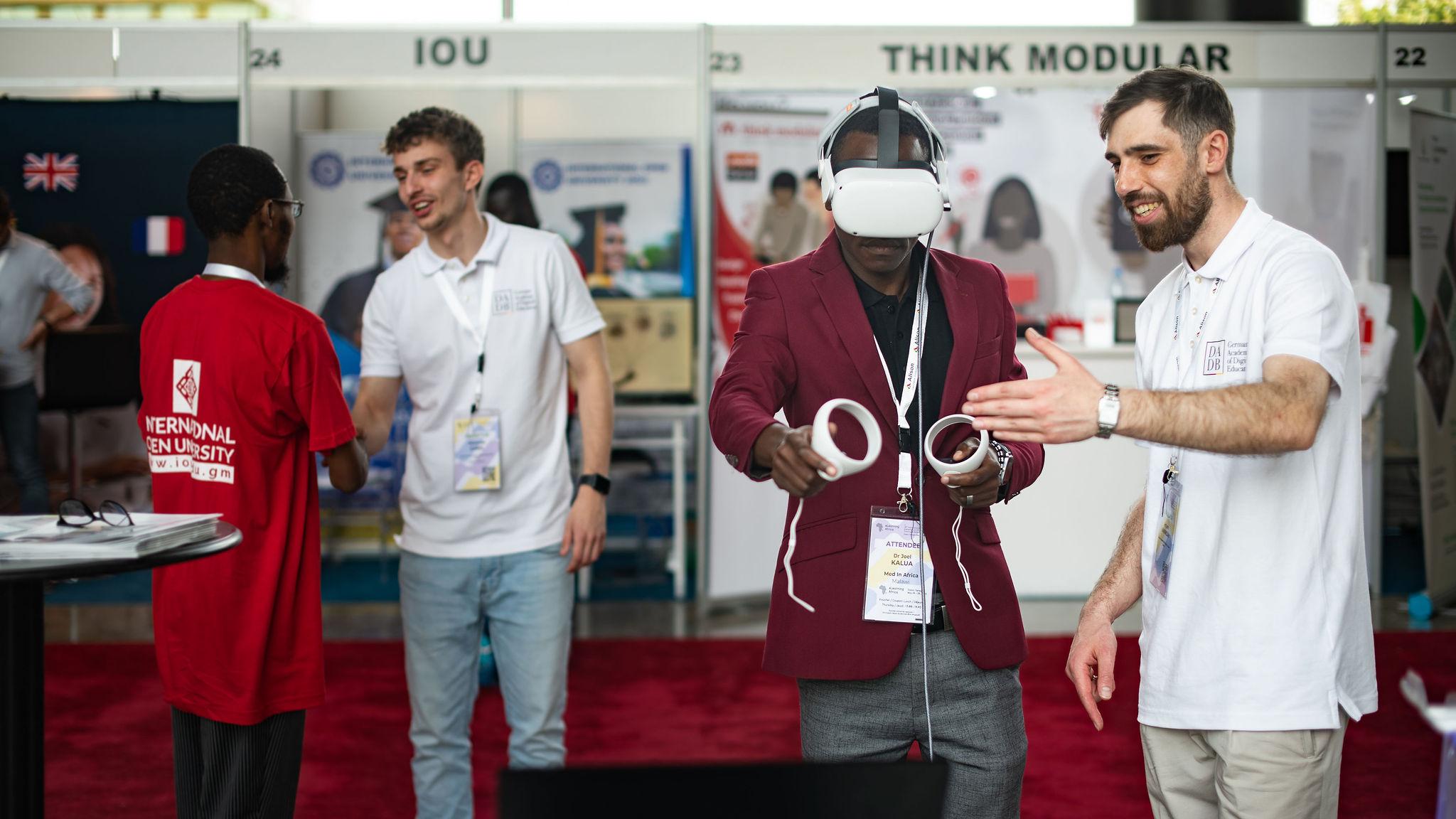
By fostering a holistic understanding of education that transcends traditional academic achievements to encompass moral and ethical dimensions, we advocate for a broader, more integrative educational paradigm, vital for addressing the complex challenges of the modern world and for fostering societies that value empathy, ethical behavior, and social responsibility. This approach prepares individuals not just for professional success but for meaningful, responsible participation in the world.
It recognises the importance of developing well-rounded individuals who are not only knowledgeable but also ethically and emotionally intelligent, equipped to contribute positively to their communities and the world at large.

Of all the countries that you have lived in either as a child, a student or for work, which has been your favourite and why?
Selecting a favorite from the countries I’ve lived in is challenging, as each holds a special place in my heart for different reasons. My experiences in these nations have been diverse and profoundly enriching, reflecting various stages of my life and influencing who I was at those times. My childhood in the Arab world, particularly in Lebanon, stands out for its deep-rooted kindness, generosity, humanity, and humour.
Can you please tell us some of the organisations you have been involved with? You appear to have held a number of board positions too.
I co-launched www.icef.com in 1991 with my late father and brother. My brother left early 1993 to work in the tech industry. My father and I built this company to become the leader in the international education and international education recruitment sector. One of its many projects was the Internet Course Finders which I helped co-develop. In 2001 I started my own projects and formed a separate company (ICWE). In 2003 my father died and my brother returned in 2004 to manage the family company. I am still a major shareholder and have advised ICEF over the years. With regard to the board positions: At present I am active on very few – e.g. I am on the Steering Committee and the Conference Chair of OEB, the global conference on digital learning. I am on the board of Management Skills for Wildlife Conservation, I am also on the board of a community charity that supports people in need.
While I lived and studied in the UK several decades ago, it was generally believed that one’s course of study at university wasn’t that important. More important was the experience and what one gained along the way i.e self-discipline, a mindset tuned to interrogating convention etc. To what extent would you agree with this?
Your experience aligns with the Anglo-Saxon approach to higher education, emphasising a liberal arts philosophy that values broad-based skills development and the cultivation of a well-rounded intellect. This contrasts with the vocational or specialised education systems in other parts of the world, where students often choose their field of study with a specific profession in mind from the beginning. The Anglo-Saxon model prepares graduates for a diverse range of careers, promoting flexibility, critical thinking, and adaptability, which are crucial in the rapidly changing nature of work.
While specialised education systems are designed to produce graduates with skills tailored to specific job roles which can sometimes restrict personal exploration and the development of transferable skills. Both educational models have their advantages, depending on individual goals, societal needs, and economic contexts. The challenge for educators and policymakers is to merge the strengths of both approaches, ensuring students acquire specialised skills while also benefiting from a broad-based education that prepares them for the complexities of the modern world.
I agree that the intrinsic value of a university education extends beyond the specifics of one’s course of study. The broader educational journey, emphasising self-discipline, a critical mindset, and the ability to challenge conventions, is crucial for facing life’s challenges and opportunities. This holistic development is vital, regardless of one’s socio-economic background or professional aspirations. However, the path an individual chooses can be influenced by their circumstances, with some needing to focus more pragmatically on vocational training due to economic pressures or specific career objectives.

What was your first foray into the business of holding e-learning conferences? And how successful have they been?
I began my career in the international education sector in the early 1990s. I organised a series of events in Moscow that brought together international educational institutions and their counterparts from Russia and the former Soviet Union states to discuss international student exchange.
In 1993 high-ranking former Soviet military officials took part looking to explore collaborations in using satellite technology for educational and training purposes across the CIS states after the Soviet Union collapse. This sparked the idea for the first e-learning event:
Online Educa Berlin (OEB Global), which was then launched in 1995 in Berlin. OEB Global will celebrate its 30th anniversary later this year.
In 1996 and 1997 we launched e-learning conferences and exhibitions tailored for the Asian markets in Singapore and Korea. The annual Online Educa Madrid kicked off in 2000, focusing on Spanish and Latin American markets, followed by an event series for the Arab World, and the OEB MidSummit in Reykjavik, Iceland, in 2017. I returned to Moscow in 2007 to organise the Online Educa Moscow edition. eLearning Africa was initiated in 2005, and has been held annually in different African capitals, with the next edition scheduled in Kigali, Rwanda, from May 29 – 31, 2024.
These events have not only been hugely successful but also memorable, playing a pivotal role in fostering communities of practice across diverse regions and sectors.
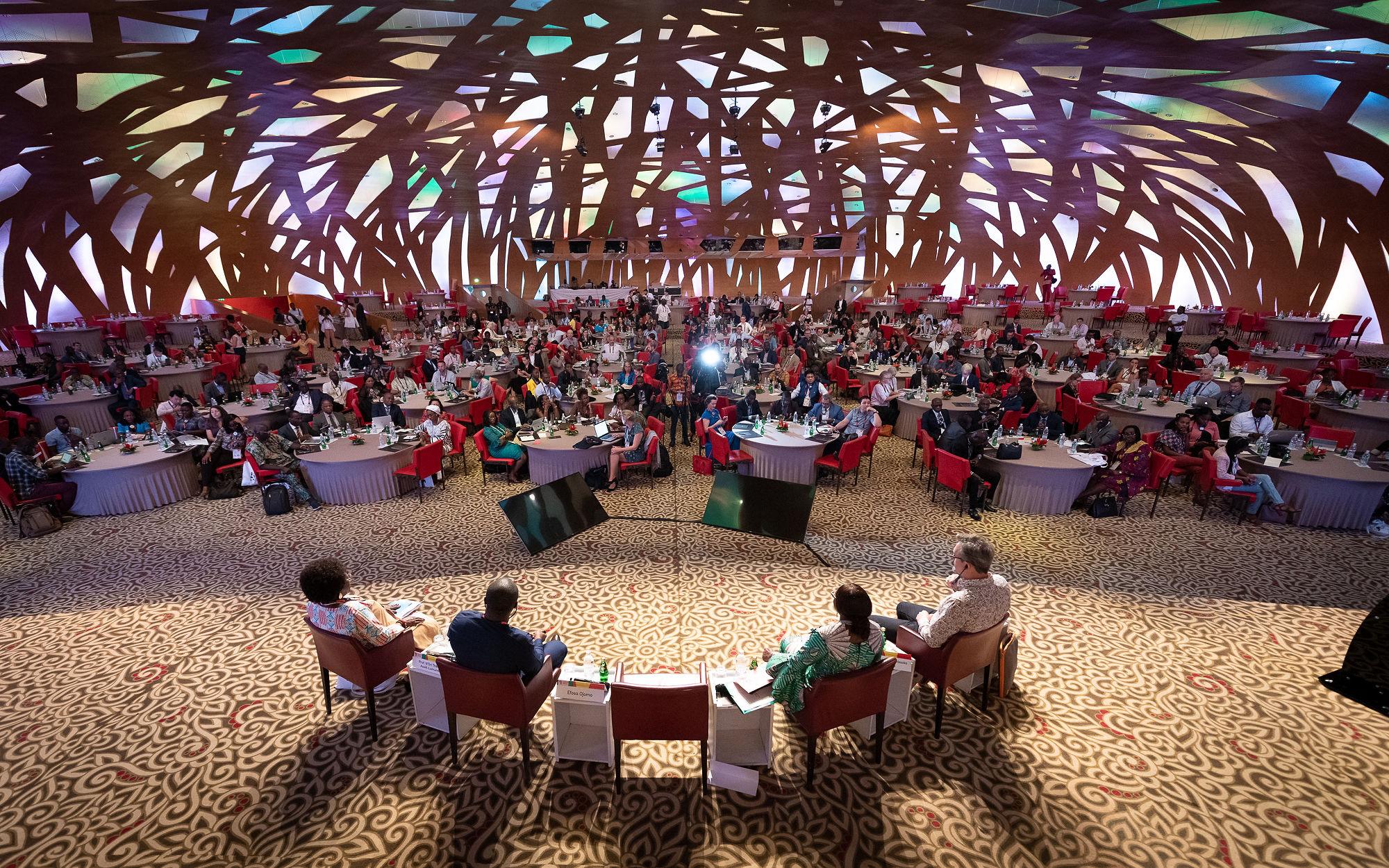
You founded eLearning Africa in 2006 and it has since become a dominant player. What is eLearning Africa all about? And is it in fact THE dominant player in Africa?
eLearning Africa is a conference and exhibition that focuses on information and communication technologies (ICT) for development, education, and training in Africa. Its core mission is to bring together a diverse group of stakeholders from across the continent and beyond, including educators, business leaders, ministers, policymakers, practitioners, and technology providers, to share knowledge, exchange ideas, foster collaborations, explore innovative solutions that can drive education and professional development forward and inspire each other to leverage technology in transformative ways. The event serves as a critical platform for networking, collaboration, and innovation, aiming to foster sustainable development and improve education and training systems across African nations.
This annual event serves as a key platform for discussions on the challenges and opportunities of digital learning and training in Africa, showcasing the latest technologies, best practices, and emerging trends in the field. Through its comprehensive programme of workshops, presentations, panel discussions and networking opportunities, eLearning Africa facilitates meaningful exchanges that are crucial for the advancement of digital learning initiatives across the continent.
Since its inception, eLearning Africa has grown significantly, attracting thousands of participants from across Africa and the globe annually. It has facilitated countless partnerships, projects, and initiatives, making it not just a conference but a catalyst for change and progress in the realm of eLearning and technology-assisted learning across Africa.
Is eLearning Africa the dominant player in the African eLearning sector? The answer is multifaceted. In terms of scope, reach, and impact, eLearning Africa is indeed one of the most significant, influential, and largest events of its kind on the continent. Its longevity (and the first event on digital learning to take place on the continent) and continued growth are testaments to its importance and relevance in the field. Through its annual gatherings, eLearning Africa has successfully highlighted the potential of e-learning and digital education and training in Africa, showcasing innovative solutions and best practices that can be adapted and scaled across the continent.
However, the landscape of digital learning in Africa is rich and diverse, with numerous initiatives, programmes, and platforms contributing to the sector’s growth. While eLearning Africa plays a pivotal role in this ecosystem, it is part of a broader movement towards embracing digital learning and education technology in Africa. Its dominance comes not from overshadowing other initiatives but from its ability to bring them together, creating a synergistic environment that amplifies the collective impact of all players in the field.
In conclusion, eLearning Africa is a key event in the African e-learning sector, celebrated for its comprehensive approach to addressing the challenges and opportunities in leveraging ICT for education and training. Its status as a dominant player is derived from its success in fostering collaboration, innovation, and a shared vision for the future of education, training, and skills development in Africa.
_____________________________
Rebecca Stromeyer, a globally recognised leader in the field of digital learning, EdTech and international education, has been a driving force in shaping the landscape of online learning, education and training. As the Managing Director and Founder of ICWE GmbH and co-founder and co-owner of ICEF GmbH since 1991, her vision and leadership have been essential in establishing the events founded by these organisations as global leaders in their respective fields. With dual German and Australian nationality, Rebecca's diverse upbringing in Kuwait and various Middle Eastern countries, notably Lebanon, has deeply influenced her career. Her academic journey in Slavonic Studies, Comparative Literature, Business Administration, and Media Studies across Berlin, Moscow, and the UK, laid the groundwork for her future endeavors in multiculturalism and languages. Since 1988, Rebecca has expertly organised influential exhibition series across Europe, Latin America and Asia, focusing on languages and multiculturalism. Her director-level experience, spanning over three decades, encompasses organising international events and campaigns centered on ICT4D, online learning, languages, and media in the education sector. In 1996, Rebecca co-founded the "Languages & The Media" conference and exhibition, a leading event in localization and language transfer in the media. This conference has become a nexus for thought leaders, content owners, language service providers, technology developers, educators, researchers, and language professionals, shaping the future of media localization. Rebecca's groundbreaking work in eLearning is epitomised by her founding of eLearning Africa, the Pan-African Network, Conference and Exhibition on Digital Learning, Training and Skills Development in 2005, a cornerstone for digital learning in Africa, and her instrumental role in launching the OEB Global, the leading global cross sector conference series on technology supported learning and training, in 1995. Her initiatives have had a global impact, including the launch of ONLINE EDUCA MADRID and organising similar events in Iceland, Russia, Asia and the Arab world. Her advisory role extends to international organisations, and she has been an active member of various boards, including the International Council on Badges and Credentials and the Drucker Society. Her tenure as Vice-Chair of the Global Business School Network and her involvement with the Global Development Learning Network showcase her commitment to global education development. In 2012, Rebecca launched the eLearning Africa Report, solidifying her status as a key voice in ICT and digital learning. Her continued efforts are instrumental in shaping the future of education and skills development worldwide, driven by her vision of a more connected and educated global community. Contact details: Linkedin handle: https://www.linkedin.com/in/rebecca-stromeyer-abb4645/ Email: info@elearning-africa.com






























































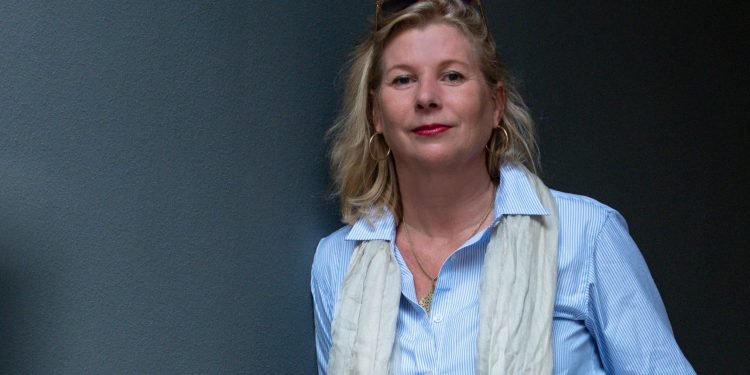





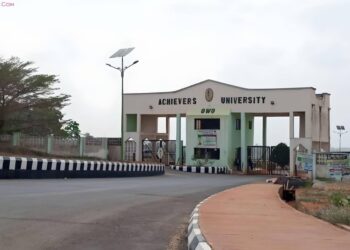

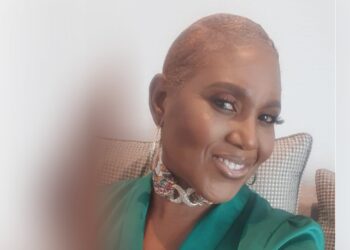

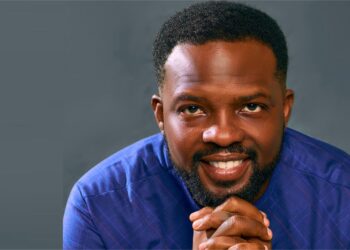










 EduTimes Africa, a product of Education Times Africa, is a magazine publication that aims to lend its support to close the yawning gap in Africa's educational development.
EduTimes Africa, a product of Education Times Africa, is a magazine publication that aims to lend its support to close the yawning gap in Africa's educational development.